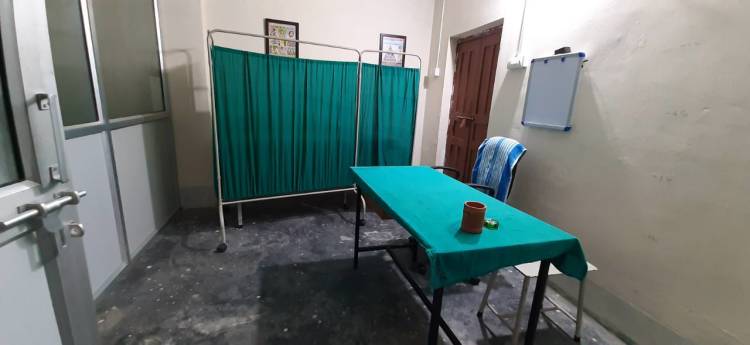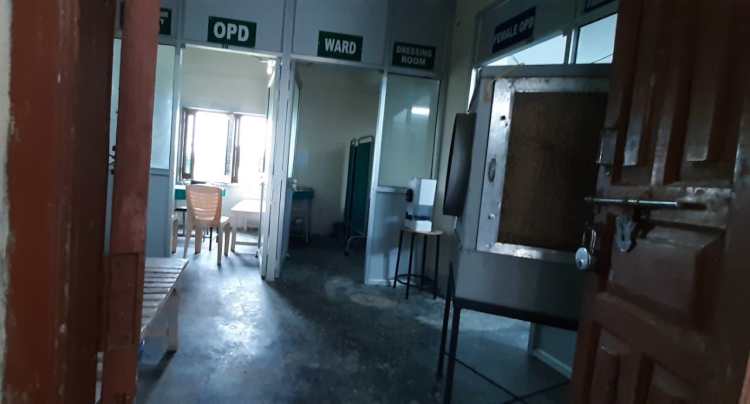Many people think that being a medico is easy. Well, it's a myth. And like most of the other myths, it isn't true. It doesn't matter if you are in dental, homeopathy or M. B. B. S.. People will tell you that dedicating five years into the field is too much.
Well, I am a medico and I stand against all these speculations. In case you are wondering what a medico is.. It's what we call ourselves and by "ourselves" I mean the future doctors who are struggling to live up to the title.

After 12th standard, the teenagers (people who aren't children nor adults but are expected to act both ways) are exposed to so many entrance exams. And the exams decide our fate. Getting into a medical college is not easy. The seats are very few and too many people to fill the seats. And if you get into college, don't be happy yet. Because that's just the beginning of the struggle.

People say that at the beginning of any course, the load isn't too much. The teachers, administration etc. tend to go easy on the new kids. Well, it isn't true here. The truth is that during M. B. B. S the first and the last year are the most difficult, bone wrecking years of our medical life. On the very first day of the very first year, we are made to sit in front of lifeless bodies- the cadavers. No, they don't let us touch it on the first day because they want us to get "accustomed" to it first. Seventeen or eighteen years old with a cadaver, fun to read but not so fun to experience. The place where the cadavers are kept is called "The dissection room". No, it's not scary anymore. Yes, it's very clean.

The cadavers are fun if you ask me. At first, they bring out the true emotions in people - fear or tears and then they are just subjects we get to learn from by tearing them apart. With all due respect, the cadavers are our Gods during that time of the academic session.
Many things happen in the dissection room. It's the highlight of the first year. People faint, they have panic attacks, the smell becomes too strong for them so they try and escape.

Many more interesting sessions also happen like many guest lecturers who come to inspire and motivate us and many basic life support sessions to give the first aid in an emergency situation.
We are also given the opportunity to visit many health centres and get the actual image of how they work and what is the environment there.

The primary health centres are the basic place of getting aid for the village area either for emergency cases or the cases which need to be inspected at a few time intervals. It has made the life of village people much easier and also coming to the foundation course where we the future doctors are taught the value of empathy, morality and decision-making skills. This is not just a basic curriculum but a lesson which makes us feel what profession we have entered into and what is the basic requirement for it. It is not just skills but also the moral values which keep the humble person alive inside.
Whatever happens, we all as buddies support each other like a family and it is also because we have to stay together for the next many years.
Well, I am a medico and I stand against all these speculations. In case you are wondering what a medico is.. It's what we call ourselves and by "ourselves" I mean the future doctors who are struggling to live up to the title.

After 12th standard, the teenagers (people who aren't children nor adults but are expected to act both ways) are exposed to so many entrance exams. And the exams decide our fate. Getting into a medical college is not easy. The seats are very few and too many people to fill the seats. And if you get into college, don't be happy yet. Because that's just the beginning of the struggle.

People say that at the beginning of any course, the load isn't too much. The teachers, administration etc. tend to go easy on the new kids. Well, it isn't true here. The truth is that during M. B. B. S the first and the last year are the most difficult, bone wrecking years of our medical life. On the very first day of the very first year, we are made to sit in front of lifeless bodies- the cadavers. No, they don't let us touch it on the first day because they want us to get "accustomed" to it first. Seventeen or eighteen years old with a cadaver, fun to read but not so fun to experience. The place where the cadavers are kept is called "The dissection room". No, it's not scary anymore. Yes, it's very clean.

The cadavers are fun if you ask me. At first, they bring out the true emotions in people - fear or tears and then they are just subjects we get to learn from by tearing them apart. With all due respect, the cadavers are our Gods during that time of the academic session.
Many things happen in the dissection room. It's the highlight of the first year. People faint, they have panic attacks, the smell becomes too strong for them so they try and escape.

Many more interesting sessions also happen like many guest lecturers who come to inspire and motivate us and many basic life support sessions to give the first aid in an emergency situation.
We are also given the opportunity to visit many health centres and get the actual image of how they work and what is the environment there.

The primary health centres are the basic place of getting aid for the village area either for emergency cases or the cases which need to be inspected at a few time intervals. It has made the life of village people much easier and also coming to the foundation course where we the future doctors are taught the value of empathy, morality and decision-making skills. This is not just a basic curriculum but a lesson which makes us feel what profession we have entered into and what is the basic requirement for it. It is not just skills but also the moral values which keep the humble person alive inside.
Whatever happens, we all as buddies support each other like a family and it is also because we have to stay together for the next many years.








